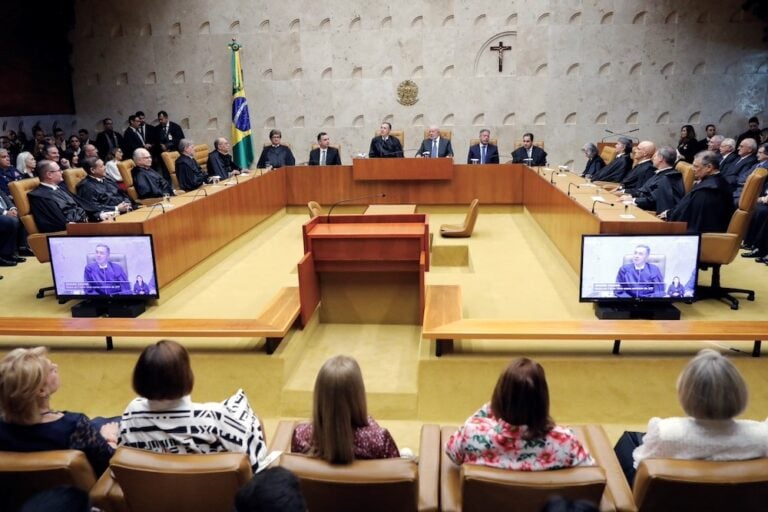(IAPA/IFEX) – The following is a 16 August 2006 IAPA press release: IAPA joins Brazil press groups in call for end to violence MIAMI, Florida (August 16, 2006) – The Inter American Press Association (IAPA) today offered its support to a call by Brazil’s leading press organizations and news media for an end to the […]
(IAPA/IFEX) – The following is a 16 August 2006 IAPA press release:
IAPA joins Brazil press groups in call for end to violence
MIAMI, Florida (August 16, 2006) – The Inter American Press Association (IAPA) today offered its support to a call by Brazil’s leading press organizations and news media for an end to the violence unleashed by organized crime, and urged state and federal officials to coordinate efforts to attack this scourge.
“We are concerned at the escalation of violence that Brazil has witnessed in recent weeks,” said Gonzalo Marroquín, chairman of the IAPA’s Committee on Freedom of the Press and Information. “It has become a matter of urgency for the government to take charge of the matter and put a halt to this violence.”
Reporter Guilheme Portanova and crew member Alexandre Coelho Calado of Rede Globo Television were kidnapped in São Paulo on August 12 by the outlaw group First Commando of the Capital (PCC) to force the broadcast of a videotaped message from the group, a leading protagonist in recent large-scale violence in the city. The PCC freed Coelho Calado soon afterwards but continued to hold Portanova until the video was aired. After that occurred, he was also set free. It was the first time in Brazil this type of coercive action had been used.
Earlier this week, Maria Mazzei, a reporter with the Rio de Janeiro newspaper O Dia, had to be moved with her family to a safe house after receiving threats following publication of her series of reports exposing the theft of corpses in a scheme to defraud life insurance companies.
While the problem of violence against the press was most evident in recent days in São Paulo and Rio de Janeiro, previous claims by the IAPA indicate that restrictions on press freedom in the form of threats, intimidation and assaults have been repeatedly occurring in all the Brazilian states.
As the campaign began for general elections in October, the National Newspaper Association (ANJ), representatives from radio and television broadcast companies (Abert/Abra/Abratel) and the National Association of Magazine Publishers issued a joint statement calling for a halt to the escalation of violence “against life, against the national heritage and against democratic institutions” and criticizing the lack of coordination among the state and federal authorities to ensure public safety.
Marroquín, editor of the Guatemala City, Guatemala, newspaper Prensa Libre, declared, “When violence predominates, fundamental freedoms are imperiled, among them free speech and press freedom, and out of fear of reprisals self-censorship emerges, as has happened in cities in Mexico and Colombia where organized crime has made itself felt.”
The IAPA representative regretted that pressure exerted by the kidnappers had forced the television channel to broadcast a message about the situation of prisons in Brazil. He recalled that the IAPA had been denouncing violence against news media and individual journalists in its reports and resolutions, as well as in its book titled “Risk Map for Journalists,” which recounts the difficulties and dangers that reporters face in covering news in Brazil, Colombia and Mexico.
Marroquín said the issue of how to face violence, from the press’s point of view, will be one of the main topics of discussion during the IAPA’s General Assembly in late September in Mexico City. In the same city, within the next few weeks, a seminar will be held on “The Press and the Illicit Drug Trade.”
The IAPA also plans to hold a seminar-training course for Brazilian journalists in December on reporting in hostile environments.


